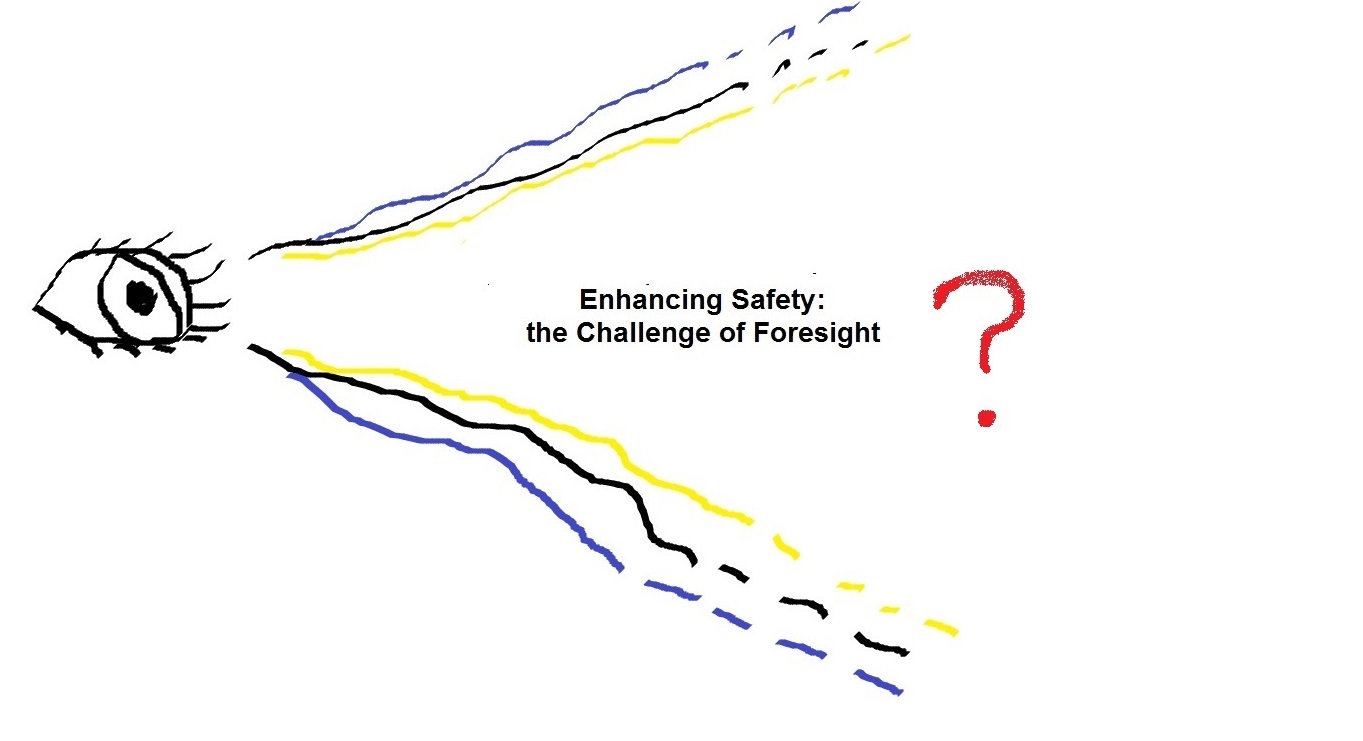

53rd ESReDA Seminar
Enhancing Safety: the Challenge of Foresight
14th and 15th November 2017, JRC, Ispra – Italy

Scope of the Seminar
Conventional safety management relies on prevention and protection approaches, but it is clear, especially after disasters, that this is not enough. Reactive approaches after events are valuable strategies to provide information and lessons on risk management deficiencies. The analysis of major accidents and crises has shown that there were early warning signs that could have been heeded and used as valuable information to design "relevant tools" and proactive strategies for preventing major events. Such missed opportunities point towards the need to improve foresight methods for enhancing safety management.
Several high-technology sectors, such as aviation and nuclear power have achieved a high performance level. Their call for a next generation of safety enhancement strategies and more proactive approaches have broadened to other sectors during the last decades. The shift from safety management approaches in which improvement is predominantly based on hindsight to include more foresight approaches has many hurdles to overcome, in theory, as well as in practice.
This raises several questions:
- How can safety imagination be enhanced: can we go beyond scenario approaches and techniques?
- How can foresight theories, methods and techniques contribute to broad risk assessments in order to improve systematic and holistic safety management?
- Addressing short term foresight versus long term planning: which methods/approaches are more appropriate for one and the other?
- How can we anticipate the new multi-faceted risks created by new technology, the digital revolution, industry 4.0, etc.? What can be done to improve our management of emerging risks?
- How to detect and handle early warning signs (EWS), weak signals, accident pre-cursors, etc.? Can the analysis techniques developed for “big events” (accidents, near misses) be applied to “tiny events” (EWS, weak signals), or are new classes of techniques needed?
- Which anomalies/surprises should we pay attention to? How to discriminate the signal from the noise? How to deal with and benefit from whistleblowers?
- How to increase the visibility of EWS? Are there tools and methods available? If yes, which are they?
- What role do leading indicators play and can they help achiev foresight with efficiency? If yes, how?
- Are new methods and technologies related to “big data” part of the solution?
- How does the social climate impact risk awareness and an organization’s ability to identify early warning signals (reporting culture, speak-up behavior and psychological safety, debate, attitude towards bad news, etc.)?
- How can safety analysts generate the political capital needed to produce organizational change when they cannot point to a past accident to demonstrate the need for improvement and face the cost challenge?
- Is knowledge of the past obsolete? Is current knowledge management practice and organizational learning in organizations well-structured to tackle foresight in safety?
- How can foresight improve resilience and accident prevention?
- How did some sectors become highly reliable, ultra-safe, non-plus ultra-safe? Why are there such big differences (performance, approach) across sectors?
The 53rd ESReDA seminar will be a forum for exploring these questions. We aim to discuss theories, concepts, and experiences of enhancing foresight in safety. Authors are invited to present their proposals and discuss successes and failures in foresight and to identify future needs in safety research and training. We want to encourage new ideas, scientific papers, conceptual papers, case studies and cross-sectoral research on the theme of foresight in safety. This seminar will bring together researchers, practitioners, specialists and decision-makers to discuss strategies to improve foresight.
Target groups and domains of application (examples)
Papers for the seminar are welcome from various stakeholders (industrialists, regulators, safety boards, universities, R&D organisations, engineering contractors and consultants, training specialists) and could address different sectors:
- Energy sector: nuclear and non-nuclear (e.g. fossil, hydro) power plants and networks
- Process industry: oil and gas, chemical and petrochemical facilities
- Transport (rail, road, air and maritime): supply and distribution network, operation
- Aerospace industry
- Critical infrastructure: electricity, water, telecommunications, information systems
- Public sector and government.
This seminar is aimed at addressing issues met by different industries. Other topics may be included if they fit well within the theme of the seminar and are applicable to foresight in safety, such as natural disasters, na-tech disasters, food safety, sanitary crisis, and banking.

